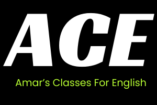AUXILIARY VERB
The Verb which helps the main verb to make tense and mood is called Helping Verb or Auxiliaries
Types of Auxiliary Verb (Helping verb) :
Primary Auxiliary Verb
Modal Auxiliary Verb
Marginal Modal Verb
Primary Helping Verb – Is, are, am, was, were, has, have, had, do, does, did को Primary Helping Verb. कहते है
TYPES OF PRIMARY AUXILIARY VERB :
Verb to Have ( have / has / had )
Verb to Do (do / does/ did )
( वह सहायक क्रिया जो हमेशा मुख्य क्रिया के साथ प्रयोग हो उसे रूपात्मक क्रिया कहते है )
THERE ARE 10 MODAL VERBS :-
2) Could 7) Will
3) May 8) Would
4) Might 9) Must
5) Shall 10) Ought to
CHARACTERISTICS OF MODAL AUXILIARY VERB :
It Always Use with Main Verb .
It does not have Subject effect.
They never change their forms.
In Modal verb you Can’t add S, ED, ING
They are always followed by an infinitive without “To” (Bare Infinitive)
They are used to indicate modality allow speakers to Express Certainty, Possibility, Willingness, Obligation, Necessity, Ability.
USES OF MODAL AUXILIARY VERB :
1) Can:-It is used to express POWER , ABILITY ,CAPACITY , ORDER, POSSIBILITY, PERMISSION.
2) Ram can lift this box
3) Smoking can cause cancer.
4) You can defeat me.
5) Rahul can move this rock.
6) Amar can speak French
7) Ram can break this wall
8) Amar can carry this load.
9) Katrina can solve this sum.
10) Can I use Your Phone
11) Can you play basketball ?
12) He can swim like a fish?
13) Amar can calculate a big sum
14) You can go now
15) Anybody can dance.
2) Could:-It is used to express PAST ABILITY / POLITE REQUEST / PAST TENSE OF CAN .
2) Sonam said that Sonali could Speak French.
3) Amar said that Sonu could teach.
4) Suman said that she could break this wall.
5) Could you please give me a pen ?
6) Could you please open the window?
7) Could you please close the door?
8) Could you please move a bit?
9) Amar could speak Hindi when he was 10.
10) Amar could speak English when he was young
11) Kajal could swim in her childhood.
12) Suman could write in her childhood.
3) May:-It is used to express EXPRESS POSSIBILITY / PERMISSION / REASON / WISH.
2) I may win the race
3) She may come today
4) India may win the match
5) May I come in, Sir?
6) May I take your pen ?
7) May I use your phone?
8) May I sit here ?
9) May you get success
10) May god bless you
11) May you get a job
12) May you get progress
13) I eat so that I may live
14) I study so that I may pass
15) I take exercise so that I may by healthy.
4) Might:-It is used to express DOUBTFUL POSSIBILITY / REASON / WISH / PAST OF MAY.
2) Sonam said that It might rain today.
3) Amar said that she might win the race.
4) Suman said that she might win the match.
5) Amar is weak. He might pass SSC.
6) The sky is clear. It might rain heavily.
7) I am weak. I might defeat you.
8) Ram is ill. He might
9) The sky is clear. It might rain heavily.
5) Will:-It is used to express Simple Future Tense with 2nd Person and 3rd Person and It is used with I and We, If they Express Determination / Promises/ Threat
2) Radha will come here tomorrow.
3) You will write a letter.
4) He will enjoy the party
5) She will dance
6) It will be Sunday
7) They will go there.
8) Will you stop making that noise.
9) I will kill you
10) We will teach you a lesson.
11) I will go there anyhow.
6) Would:-It is used to express PAST TENSE OF WILL / POLITE REQUEST / PROBABILITY / GREAT DESIRE / PAST HABIT / UNREAL CONDITION .
2) She said that she would wait for me.
3) Would you like a cup of tea?
4) Would you mind lending me some money?
5) If I were a bird, I would fly in the sky.
6) If I were the President, I would lower taxes.
7) Shall:-It is used to express Simple Future Tense with I and We and It is used with Second Person and Third Person if they express Determination / Promises / Threat .
2) We shall enjoy the party.
3) We shall be in Japan next year
4) What shall we talk about?
5) Shall I open the window?
6) We shall eat after the party.
8) Should:-It is used to express PAST TENSE OF SHALL / ADVICE / DUTY / INSTRUCTION .
2) Amar said that we should go there
3) Amar should drink milk
4) Ram should help the poor
5) You should write well.
9) Must:-It is used to express DUTY / OBLIGATION / INSTRUCTIONS / STRONG ADVICE / COMPULSION / NECESSITY / PROBABILITY / PROHIBITION .
2) I must go now.
3) He must go home.
4) They must pay fine.
5) You must be loyal to your country
6) You must not touch the electric wire.
10) Ought to:- It is used to express MORAL OR SOCIAL OBLIGATION / LEGAL ADVICE ./ LOGICAL CONCLUSION .
2) You ought to exercise regularly.
3) She ought to be back by 4 o’clock.
4) You ought to lodge an FIR
5) You ought to inform the police.




